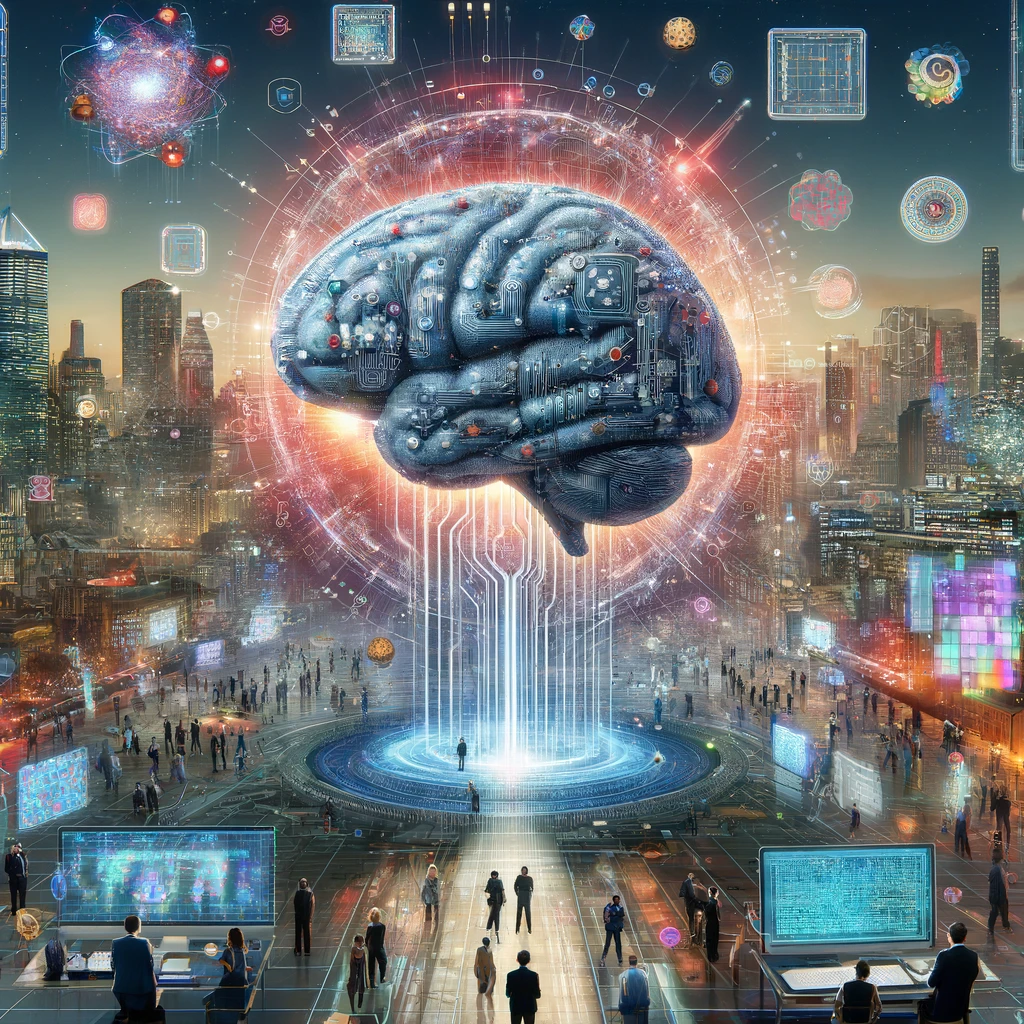Generative AI: Why now?
Today, as Generative AI (GenAI) takes center stage, it's crucial to contextualize its significance, understand its present implications, and anticipate its future in enterprise operations.

The Economic Imperative and Operational Reshaping of Generative AI in the Enterprise
We've witnessed the waxing and waning of multiple technological trends in the ever-evolving narrative of technology and businesspromised to harness. From the highs of AI 1.0 to the transformative promise of Big Data, each era has left its mark. Today, as Generative AI (GenAI) takes center stage, it's crucial to contextualize its significance, understand its present implications, and anticipate its future in enterprise operations.
The Backdrop: Reflecting on AI 1.0 and Big Data
AI 1.0 promised to harnesslead to cost savings and vast datasets to unlock unprecedented insights. However, the reality proved more nuanced. Despite the allure of volume, many enterprises soon realized that without context, structure, and purpose, even the most sophisticated models could stumble. The focus was mainly on data consumption and interpretation, often through complex dashboards and reports.
Natural Language Interfaces: A Game-Changer for Data Access
In contrast to the traditional modes of data interpretation, GenAI's natural language capabilities have democratized data access in enterprises:
- Simplicity Over Complexity: Moving away from intricate data visualizations, natural language interfaces allow stakeholders to engage in human-like interactions, making data querying as simple as asking a question.
- Bridging the Knowledge Gap: These interfaces empower individuals across departments, from marketing to HR, granting them direct access to insights without intermediation.
- Real-time Insights: In today's agile business world, real-time querying facilitated by GenAI ensures immediate access to essential insights.
Conversational Agents: The Vanguard of Automation
Beyond mere data interpretation, GenAI-powered conversational agents are revolutionizing enterprise operations:
- Beyond Mundane Tasks: These agents can automate many routine tasks, from email sorting to invoice processing, liberating human resources for more strategic endeavors.
- Personalized Workflows: With the ability to learn and adapt, these agents can offer highly customized workflows, tailoring their responses and actions based on individual preferences.
- Cost Efficiency and Performance Boost: By streamlining operations and reducing manual errors, these agents lead to cost savings andlarge corporations have largely captured the value of AI empower teams to focus on innovation and strategic tasks.
The Promise of Generative AI: Conversations Leading to Actions
The fusion of GenAI with conversational agents is poised to redefine enterprise operations. As these agents grow in sophistication, their role will expand from task automation to active participation in decision-making, strategy suggestions, and even market trend predictions.
Martin Casado @a16z makes the case for why "this time" differs.
1. Historical AI Economics:
Historically, AI's economic narrative has been episodic, with periods of intense interest followed by lulls. Despite significant progress over the past 70 years, large corporations have largely captured the value of AIGenAI is paving the way for more agile, efficient, and high-performing organizations by transforming data access methods and automating routine tasks. Startups have faced challenges due to the economics of AI, which often didn't favor them.
2. The AI Mediocrity Spiral:
Traditional AI economics for startups has been challenging. Many AI applications require high accuracy, leading to increased costs and reduced scalability. This resulted in a cycle where startups struggled to achieve the desired economic scale, especially when competing against human capabilities.
3. The Promise of Generative AI:
Generative AI is different. It can take inputs in natural languages and produce outputs like conversations, images, and more. This technology is already being applied in areas like creativity (video game components), companionship (AI characters for social interaction), and co-piloting (assisting with work tasks). The economics of generative AI are favorable for startups, opening up vast markets and reducing the emphasis on absolute correctness.
4. The Third Epoch of Compute:
Generative AI could mark the third primary phase in computing. The first was the microchip, which revolutionized computation. The second was the internet, which brought distribution costs to nearly zero. Now, generative AI has the potential to bring the marginal cost of creation to almost zero, paving the way for a new wave of transformative companies.
5. Jevon’s Paradox & The Future:
There's concern about AI's impact on jobs and the economy. However, Jevon’s Paradox suggests that as the price of a resource drops, its demand increases, often outweighing the initial reduction in price. With generative AI, as the cost of creation drops, we can expect a surge in demand, leading to increased productivity and potentially new job opportunities.
In Conclusion
Generative AI's convergence with natural language interfaces isn't just a technological evolution—it's a paradigm shift, a strategic revolution. GenAI is paving the way for more agile, efficient, and high-performing organizations by transforming data access methods and automating routine tasks concerned about AI's impact. The horizon promises a future where conversations seamlessly lead to actions, and insights manifest as tangible business outcomes.
For CxOs at the helm of Digital Transformation, understanding and leveraging the economics of generative AI is imperative. As this technology continues to evolve, it offers the potential to reshape industries, create new business opportunities, and drive unparalleled economic growth. Embracing generative AI can provide a competitive edge in the ever-evolving digital landscape.
